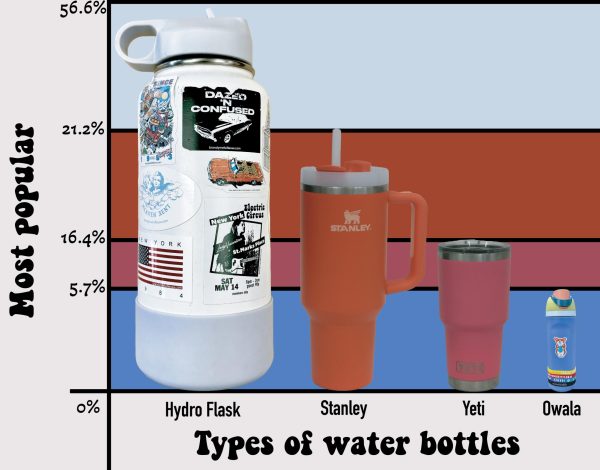Facebook’s newest scandal may be the biggest technological problem of all time

Photo by Wikipedia, used with permission
What is data? Data is defined by the values, statistics or qualitative information stored and kept track of. Anything we do is recorded as data. Where we go, what we eat, as long as it is stored for reference it could be classified as data. Data also could be classified as your online personality, how many social media apps you are logged into or even where you go to school and what your age is. Your own personal data are supposed to be classified, but Facebook compromised your data for their own personal gain.
April 10, Facebook CEO Mark Zuckerberg attended a senate hearing for the selling and distributing our data to a company called Cambridge Analytica. This company used a simple personality quiz app to gain the information on everyone who took it. While it had the users’ consent, the app then proceeded to steal the information of their Facebook “friends” without consent.
What’s the significance of your data being sold to other companies? Cambridge Analytica used this data to create user-specific ads, articles and products in hope of increasing the amount of products sold. They used your to data to profit off your wants, needs and desires. On top of this, Cambridge Analytica created user specific propaganda in collusion with the Trump campaign during the presidential election. They targeted people who wouldn’t normally vote to try and get them to vote their way.
The company took advantage of us by stealing our private information, without even notifying us. Most people had no idea it had been done to them, and were outraged when they found. Cambridge Analytica used Facebook to take advantage of people who really did not even know what they were agreeing too. However, this is not just their fault. Facebook let this happened, and never warned the us of potential issues. Facebook failed to create a safe online environment, as well as laying out a simple yet effective privacy policy for its users to read and follow.
The congressional hearing addressed many of the concerning questions to Zuckerberg, such as what other apps were allowed to access this data and how much data did Facebook have on each individual. One report found that on average, Facebook has 29,000 pieces of data on everyone that uses its platform. These data points could be your appearance, your personality or anywhere you go. They could know practically everything about what you do, what your weekend was like or even how your most recent sports competition went.
Over the course of the week, Facebook’s stock dropped 12 percent and is currently receiving a lot of bad PR. Despite this, it is doing everything it can to become a reputable company. Not only has it released 27 pages of guidelines for what the website allows and forbids; the company is also warning future investors of other similar mistakes. It’s starting to crack down on its privacy policy and trying to make the whole platform more user-safe. It’s finally starting to take a step in the right direction to make social media platforms more safe to everyone that uses it.
Being one of the largest technological companies in the world, this scandal prompted massive protest and upheaval among its users. By drawing more attention to privacy policies, we will hopefully be able to finally understand what they are agreeing to. Ultimately, the scandal has been an extreme misjudgment in error by Zuckerberg and his company, however, it has the potential to push our technological advancement into the future instead of pushing us further away from true online security.
By BRENDEN JACOBY






![On the stage, Daniel Bozinovski and Rachel Treto play their part as Tom and Hannah in the show “The Cast List”. The show was about a group of students who were told about their cast list for the play “Romeo and Juliet.” The Theater I students were in preparation for their first showcase of the year. Students went over their lines during all of their class for the past two months. “[We put in] a lot of rehearsal, practicing lines, making sure you have everything memorized and making sure you are ready to go in and not forget anything,” Nathan Weeks said. Photo by Megan Kubas.](https://www.whitneyupdate.com/wp-content/uploads/2024/05/IMG_4085-600x396.jpg)





